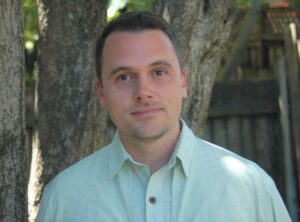
- This event has passed.
Coexistentialism: Living after the End of the World
March 13 @ 1:00 pm - 3:00 pm
This event will take place on Zoom – please register here for a link.
Existentialism is a renewable resource. What began as a literary and philosophical movement in the 19th century has undergone a profound transformation in recent years, as the conditions of habitats and inhabitants of Earth have been altered by the rapid growth of industrial societies. Sam Mickey articulates ways in which the ideas, attitudes, styles, and practices associated with existentialism are being renewed in response to the historically unprecedented ecological challenges facing humans and all life on Earth. An ecological existentialism or coexistentialism has emerged in the work of scholars who engage with what remains after the ends of the world, a sense of ”after” associated with what can be called “post” discourses, like postmodernism, postsecularism, postcolonialism, and posthumanism. Ecological existentialism seeks ways of existing after the end of the world. In our current moment of crisis, we are called to renew our engagement in questions of freedom, agency, anxiety, meaning, humanity, life, and the very nature of existence.
 Sam Mickey, PhD, is a teacher, author, and editor working at the intersection of philosophical, religious, and scientific perspectives on human-Earth relations. He is an adjunct professor in the Theology and Religious Studies department and the Environmental Studies program at the University of San Francisco, in San Francisco, California. He is also a research associate for the Yale Forumon Religion and Ecology, and an author of several books, including On the Verge of a Planetary Civilization: A Philosophy of Integral Ecology (2014), Coexistentialism and the Unbearable Intimacy of Ecological Emergency (Lexington Books, 2016), and New Materialism and Theology (Brill, 2022).
Sam Mickey, PhD, is a teacher, author, and editor working at the intersection of philosophical, religious, and scientific perspectives on human-Earth relations. He is an adjunct professor in the Theology and Religious Studies department and the Environmental Studies program at the University of San Francisco, in San Francisco, California. He is also a research associate for the Yale Forumon Religion and Ecology, and an author of several books, including On the Verge of a Planetary Civilization: A Philosophy of Integral Ecology (2014), Coexistentialism and the Unbearable Intimacy of Ecological Emergency (Lexington Books, 2016), and New Materialism and Theology (Brill, 2022).